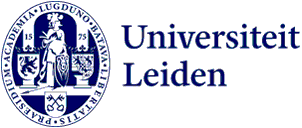
Critical thinking? Or rather generous thinking?
‘Critical thinking’ is an expression all academics have heard of: it’s the first learning objective in the Leiden Vision on Teaching and Learning. It’s both a historical topic with roots that reach back a long way and a topical problem too. The question on everyone’s lips is whether critical thinking really is the most important thing students should learn at university. Inaugural lecture by Herman Paul, Professor of History of the Humanities, on 28 June.
The past, present and future of critical thinking are the subject of Herman Paul’s inaugural lecture. Imagine, he says, I’m doing a study of critical thinking in the humanities. That would be a fantastic approach for a historiography that transcends disciplinary boundaries because for centuries scholars in all disciplines of the humanities have had ideas about what critical thinking entails. Textual criticism, literary criticism, criticism of taste, logical criticism and Kant’s Critique of Pure Reason: ‘They were falling over each other,’ says Paul.

Skills, virtues and attitudes
What would a historical study like this add to the contemporary debate on criticism? Paul argues that today’s critical thinking appears to be a question of skills, but his historical analysis shows that ‘skills’ is too limited a category. Critical thinking, as he illustrates, is also a virtue. And it is also associated with attitudes, such as distance from dogmatism or identification with a democratic or Marxist agenda.
With an analysis of the critical thinking movement in the United States, Paul argues that critical thinking is therefore about not just skills but, more broadly, the development of a ‘self’, about becoming a critical person. As Michel Foucault would say: critical thinking demands ‘work by the self on the self’.
Different ‘selves’
A question then is: how does this critical self relate to other selves? To what extent does this self correlate to an entrepreneurial self that wants to successfully bring the product ‘me’ to market, or a neoliberal self that isn’t bothered with justice or solidarity? Research in Singapore has shown that a critical thinking course is sometimes nothing more than a box-ticking exercise for the CV of students who want to be able to compete on the job market. In practice, critical thinking is not always as democratic or anti-capitalistic as humanities scholars would like to believe.

Postcritique
Even more interesting is the question of how much of a future critical thinking has. Paul refers to critical thinker Rita Felski and her critics in the ‘postcritique’ debate. Some say that critical thinking must never be relinquished, for instance in the battle against neoliberalism. However, others say that Marxist and anticolonial criticism in the Global South have made no difference whatsoever to people’s lives, despite critical thinking being based on the hope that the world will become a better place. But this hope has given way to resignation or disappointment even: critical thinking has proven unable to make a big difference.
Critical proximity
Paul therefore agrees with Bruno Latour, who believes that today, in 2021, critical thinking should no longer be our number one priority. Our world in crisis needs nothing more than to care about what is true and what makes human communities as sustainable as possible. Rather than critical distance this requires ‘critical proximity’. Paul therefore calls for ‘generous thinking’, which has a legitimate role for criticism, but also teaches students what dedication and attention to, and involvement with, the public interest really means.
